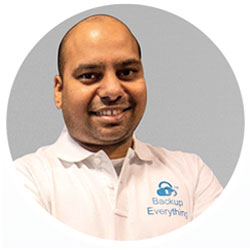With more and more implications towards conventional real-time storage mediums, organizations, as well as individuals, are exploring innovative storage mediums. What else can be more relevant to these market demands, other than cloud storage solutions? Owing to its remote and privacy features, there has been an immense increase in the use of cloud services. Online storage mediums offer up to unlimited storage along with the additive advantage of file sharing, privacy, scalability, easy access, and cost-effectiveness.
Remote access feature of the cloud storage has also increased its effectiveness in the eye of individuals and organizations. They just need an internet connection, and data in the cloud will be just a click away. Thus, it exempts the company’s business plan from the liability of managing their on-site data center and the need to buy more and more storage devices to cope up with growing data volume. Popular vendors of cloud storage include Google Drive, Apple iCloud, and OneDrive. Furthermore, Microsoft Office has also employed cloud services to offer remote data access to the users. Cloud services can be accessed through either a mobile app or a desktop app in Mac and Windows operating systems. However, people often get confused that does having cloud storage is the same as having cloud backup? Let’s find in detail.
Do’s and Don’ts of Cloud Storage
There are many do’s and don’ts, which can help businesses as well as individuals to effectively use their cloud storage space. First of all, don’t always rely on the cloud storage for the data storage, as it gets expensive when storing multiple versions of files and folders. Secondly, don’t share stored files authorization with anyone because it contains sensitive data. Moreover, owing to easy sharing, there are chances of unauthorized access. Lastly, do not let excessive data to deplete cloud storage as keeping a lot of data on the cloud storage won’t let storage of future vulnerable data and may also slow down the system.
However, there are some tips to maximize the effectiveness of cloud storage. Do look for devising multiple data backups. In addition to cloud storage, consider preparing backup on some on-site storage mediums. This option can prove helpful in optimizing cloud storage as data burden can be shared, and less cloud storage will be required. To ensure data security, consider encrypting cloud data as it might contain sensitive data. The next option can be to prepare online backups of all those devices having important data. Always keep a check on devices having vulnerable data and constantly sync them with cloud storage. There are a lot of cloud storage service providers offering multi-dimensional services. However, to employ the best one, prepare a checklist of the features you want in your cloud storage, and pick those fulfilling your wish list.
Apart from all these do’s and don’ts, always make sure that cloud storage should have an effective disaster recovery plan. It must be efficient enough to let customers swim through any sort of technical or natural disasters. Nevertheless, complying with the above-mentioned do’s and don’ts is the only way to take maximum benefits of cloud storage.
Different Backup Mediums
Following are some of the commonly used backup mediums:
Hard Drives
For years, hard drives have been used as the most typical and profound source for backing up important data. It is one of the cheapest yet easy-to-find backup medium. Moreover, it comes in variable size. Western Digital has launched the world’s largest hard drive with a storage capacity of 15 TB. However, there are some implications too. Hard drives are prone to technical failures and get easily damaged due to power surge. Furthermore, they consume more power as compared to other storage mediums.
Network Attached Storage
Network Attached Storage (NAS) is a sort of personal cloud storage. This option is more suitable for the ones who are more inclined towards personalized stuff. NAS devices are appropriate for those who want to take full control of their storage medium and does not want their important data to be managed on remote servers. It is analogous to establishing a personal local data storage medium with the internet connection to share it with the authorized users. The advantage involves a one-time hardware cost, and there will be no periodic billing. However, the downside is that in case of any calamity or issues in the vicinity, NAS will also get affected and therefore there are chances for data to be affected.
Cloud Backup
Cloud backup is not as same as cloud storage. Cloud storage is the process of saving data to some remote server. There will be no need of managing on-site storage medium and for this, cloud service providers will charge some subscription fee, depending on the amount of cloud storage in GBs.
On the contrary, cloud backup is the autonomous process of backing up important and designated directories on the cloud network along with the recovery setup. Here, the user will have to assign the backup schedules and the directories to backup. After this, everything will be done in the background. In case of any disaster, backed up data can be restored to the designated location.
Conclusion
There is no doubt in affirming the need for backup, even though someone is using cloud storage. The reason simply lies in the finding which says that; how stern would storage medium be, it is nothing without a contagious backup system. Furthermore, storing data on the cloud is sort of voluntarily as well as a manual practice which anyone can forget in the glitch of daily routine. Out on many backup mediums, cloud backup is a better choice from many perspectives. The key one is the automatic process, as we can stay assure that important files are constantly being backed up, even we forget to do so. Furthermore, the rich accessibility of cloud backup allows users to access data from any corner of the world.



